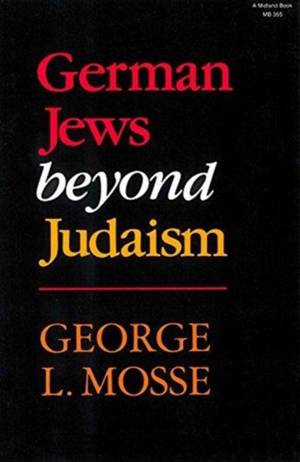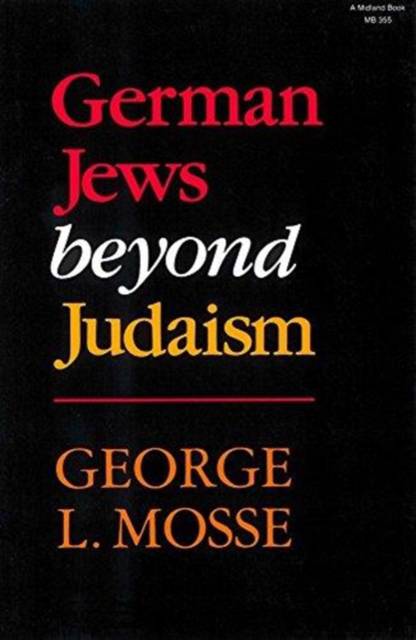
Je cadeautjes zeker op tijd in huis hebben voor de feestdagen? Kom langs in onze winkels en vind het perfecte geschenk!
- Afhalen na 1 uur in een winkel met voorraad
- Gratis thuislevering in België vanaf € 30
- Ruim aanbod met 7 miljoen producten
Je cadeautjes zeker op tijd in huis hebben voor de feestdagen? Kom langs in onze winkels en vind het perfecte geschenk!
- Afhalen na 1 uur in een winkel met voorraad
- Gratis thuislevering in België vanaf € 30
- Ruim aanbod met 7 miljoen producten
Zoeken
Omschrijving
Jews were emancipated at a time when high culture was becoming an integral part of German citizenship. German Jews felt an urge to integrate, to find their Jewish substance in German culture. George Mosse argues that they did this by adopting the concept of Bildung, the idea of intellectual and moral self-cultivation.
Specificaties
Betrokkenen
- Auteur(s):
- Uitgeverij:
Inhoud
- Aantal bladzijden:
- 112
Eigenschappen
- Productcode (EAN):
- 9780878200535
- Verschijningsdatum:
- 1/05/1997
- Uitvoering:
- Paperback
- Afmetingen:
- 154 mm x 229 mm
- Gewicht:
- 164 g

Alleen bij Standaard Boekhandel
+ 36 punten op je klantenkaart van Standaard Boekhandel
Beoordelingen
We publiceren alleen reviews die voldoen aan de voorwaarden voor reviews. Bekijk onze voorwaarden voor reviews.









